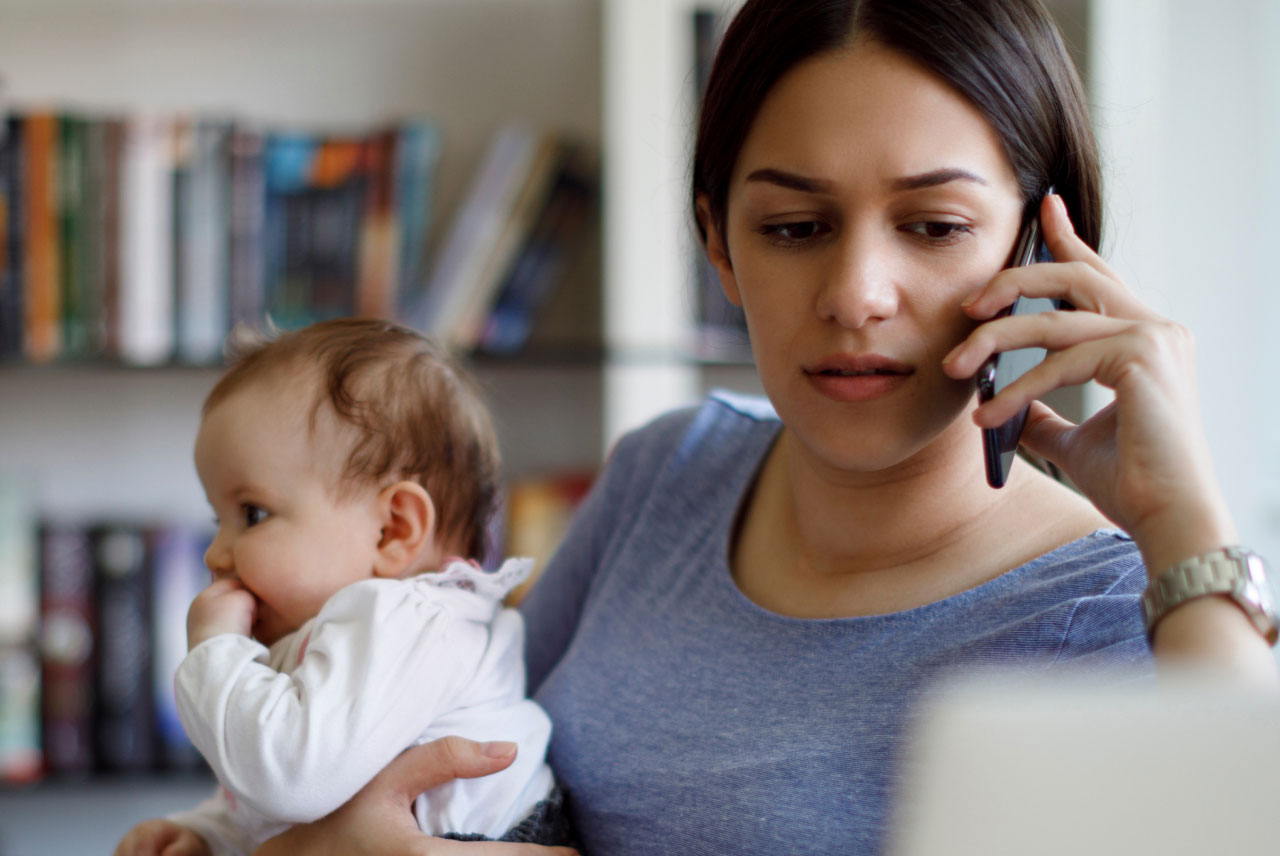Here, women’s voices matter
That’s why we take a personalized approach to women’s care by offering convenient, easy-to-access products and services.
You’re not alone.* If you think you need support, we're here to talk. Postpartum depression and anxiety are highly treatable. Schedule your counseling session today. Disponible en select locations.*
Get a counseling session with a trained, licensed therapist.
Available in select states where mental health counseling services are provided.
Trained in treating postpartum and prenatal depression and anxiety by Postpartum Support International (PSI), our MinuteClinic® licensed therapists are available in person and virtually, on evenings and weekends too.
Available in select states where mental health counseling services are provided.
The Postpartum Support International HelpLine is available between 8 AM and 11 PM ET. If it is after hours, you can leave a confidential message and your call or text will be returned as soon as possible.
Llame al 1-800-944-4773 (TTY: 711)
If you or someone you know is experiencing a crisis, call or text the Suicide and Crisis Lifeline at 988.

Postpartum depression (PPD) is a medical condition that women can get before and after childbirth. While it may be mistaken for the baby blues, the symptoms of postpartum depression are more intense and last longer. Moms can be diagnosed with peripartum depression during pregnancy and postpartum depression up to one year after giving birth.
Postpartum depression symptoms are similar to depression, but may include:*
Someone with postpartum anxiety can feel consumed with worry and constantly nervous or panicked about the safety and well-being of the baby. Postpartum anxiety can be experienced on its own, but sometimes moms can experience it in addition to depression.
Postpartum anxiety symptoms during and after pregnancy might include:*
Postpartum depression and anxiety are highly treatable. MinuteClinic® at CVS® offers mental health counseling and you can talk to a licensed therapist within one week.* If needed, a licensed therapist can refer you to alternative or higher-level care. Alternative care may include medication management.
That’s why we take a personalized approach to women’s care by offering convenient, easy-to-access products and services.
Postpartum depression, or PPD, is depression that occurs after having a baby. Feelings of postpartum depression are more intense and last longer than those of "baby blues," a term used to describe the worry, sadness and tiredness many women experience after having a baby.
Fuente: Centros para el Control y la Prevención de Enfermedades (CDC), Depression During and After Pregnancy. Acceso: 3 de octubre de 2023.
The symptoms of postpartum depression are similar to symptoms of depression but may also include:
Fuente: Centros para el Control y la Prevención de Enfermedades (CDC), Depression During and After Pregnancy. Acceso: 3 de octubre de 2023.
Postpartum depression is highly treatable. Talk therapy, such as mental health counseling at MinuteClinic®, is also used to treat depression, often in combination with medications.
Fuente: Centros para el Control y la Prevención de Enfermedades (CDC), Depression During and After Pregnancy. Acceso: 3 de octubre de 2023.
Postpartum depression can occur up to 1 year after having a baby.
Source: The American College of Obstetricians and Gynecologists, Postpartum Depression and Anxiety. Accessed October 3, 2023.
Someone with PPA may experience extreme worries and fears, often over the health and safety of the baby. Some people have panic attacks and might feel shortness of breath, chest pain, dizziness, a feeling of losing control and numbness and tingling.
Source: Postpartum Support International, Anxiety During Postpartum and Pregnancy. Acceso: 3 de octubre de 2023.
The symptoms of anxiety during pregnancy or postpartum might include:
Source: Postpartum Support International, Anxiety During Postpartum and Pregnancy. Acceso: 3 de octubre de 2023.
Therapy is recommended to help treat anxiety. You also can consider medication, especially if anxiety has a big impact on your life or if therapy does not help on its own. Making time for self-care, joining support groups, and using community resources also can help with anxiety.
Source: The American College of Obstetricians and Gynecologists, Postpartum Depression and Anxiety. Accessed October 3, 2023.
Anxiety can start at any time during or after pregnancy. It most often begins right after delivery and up to 6 weeks postpartum, though it may happen up to a year after delivery.
Source: The American College of Obstetricians and Gynecologists, Postpartum Depression and Anxiety. Accessed October 3, 2023.
*FOR 1 IN 5 MOMS HAVE POSTPARTUM DEPRESSION OR ANXIETY. YOU'RE NOT ALONE: World Health Organization (WHO). Launch of the WHO guide for integration of perinatal mental health in maternal and child health services. Publicado el 19 de septiembre de 2022.
*FOR AVAILABLE IN SELECT STATES: Available in select states where mental health counseling services are provided.
*FOR POSTPARTUM DEPRESSION SYMPTOMS: Center for Disease Control and Prevention (CDC). Depression Among Women. Last reviewed May 22, 2023.
*FOR POSTPARTUM ANXIETY SYMPTOMS: Postpartum International Support (PSI). Anxiety During Pregnancy & Postpartum
*FOR SCHEDULING A SESSION WITHIN A WEEK: As of July 31, 2023, 87% of patients are able to book an appointment within a week. Appointment availability may vary.






